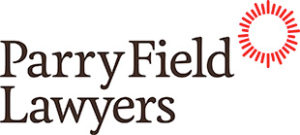Recently IT Brief had the opportunity to talk to GitHub executive Paul St John about their acquisition by Microsoft, A/NZ expansion plans and their vision for open source.
Can you tell me a bit more about GitHub’s relationship with Microsoft?
We’ve always had a relationship with Microsoft and throughout the years they have been a big user of ours. In fact, a lot of Microsoft’s ‘crown jewels’ are based off open source. They’re also one of our largest open source contributors.
So they saw a very interesting thing happen when they put their code on GitHub, they noticed that the number of people contributing to the value of their code base grew exponentially. They now had the whole world looking at it, as opposed to just inside their own four walls, so they saw a lot of benefit from having their code there. So the relationship grew from that.
Another thing that really impressed us was Microsoft’s desire to bring the best tools to developers. For us, that’s really important because it’s the developers who are building the future.
How has the recent acquisition impacted business?
So right now we are in the regulatory stage, which means we can’t interact with each other. Other than our ISP partnership of course. However, I believe the impact will be great once the close happens.
For instance, Microsoft has access to companies that we would love to get an introduction to. I also believe what will happen is Microsoft and GitHub will work together to ensure that all the best tools are available to developers on the GitHub platform.
I think the acquisition will have a really good impact on the business.
What is GitHub’s current growth strategy, especially on the Enterprise side of things?
We’ve always been a tool, so up until now it’s been land and expand. We’re still going to pursue that, however, GitHub is also becoming more of a platform sale, especially around security. We look at the fact that we have so much intelligence in the code base that we can utilise that data to inform businesses how to operate and work with their code.
We want developers to be able to set up their toolchains very quickly and we can help make that happen.
So assisting developers with toolchains and helping businesses with their code is the future for us and that is how we aim to grow. That is especially true for the A/NZ region.
Let’s chat about open source for a bit, in your opinion what makes it so popular?
I think it’s all about what the developer can get out of open source. It’s easy to use, for instance, GitHub flow is one of the easiest ways developers can communicate with each other regardless of where they are around the world.
We’ve been working hard to make sure that the open source community has access to the best way of coding. We also pride ourselves on working with that community and really listening to their feedback.
The second thing that makes open source so popular is the fact that everyone is there. It’s a place where a passionate community comes together.
The reason businesses like it so much is because open source code can propel innovation within the business very fast. You don’t have to reinvent the wheel, all business need to do is grab what they need. So it really acts as an accelerant.
Open source is quickly becoming mainstream and the community behind it just keeps on growing.










 For the last 11 years Effectus has built a strong presence in IT Management & Governance Consulting throughout New Zealand of which I am very proud. When we celebrated our 10-year anniversary I reflected on how much had been achieved, including founding the EPIC Innovation Centre, and I predict another fulfilling decade ahead of us with specific focus on supporting our customers with disruption and transformation.
For the last 11 years Effectus has built a strong presence in IT Management & Governance Consulting throughout New Zealand of which I am very proud. When we celebrated our 10-year anniversary I reflected on how much had been achieved, including founding the EPIC Innovation Centre, and I predict another fulfilling decade ahead of us with specific focus on supporting our customers with disruption and transformation.  Kaila Colbin
Kaila Colbin